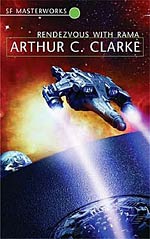
![]() JediDunedain
JediDunedain
6/28/2014
![]()
Typical of Clarke, and the usual criticism apply. The primary drama is the conflict between ideas, perspectives, knowing and not knowing. It is not about primarily physcial survival. It is about discovery and science.
Pros: The characters are primarily scientist types, like Clarke himself. That means the science itself has to be interesting enough to capture imagination, and interest. True, again to Clarke, the science, at its day delivers. Yes, we know a thosand fold more about the sun than 1970s science that is the foundation. But the space exploration and personal challenges do not change. Clarke challanges a very active visual imagination to work through the three dimensional dramas. And that is the connection point of the book.
Cons: The plot is rather flat, and the conclusion of this book does not leave a satisfied resolution, but there are more books in the series. The attempt to reflect the complxities of interplanetary political dimensions within the artificial Rama world, as a device to challenge the political assumptions of the day, have an edge, if the edge is not fully refined perhaps this thread lacked Clarke usual precision.
Summary: Clarke is a sober and landmark contributor to science and SF. This work is more period piece than classic. It is probably less a landmark or milestone, and more like a notable curiosity, if one has the inclination.